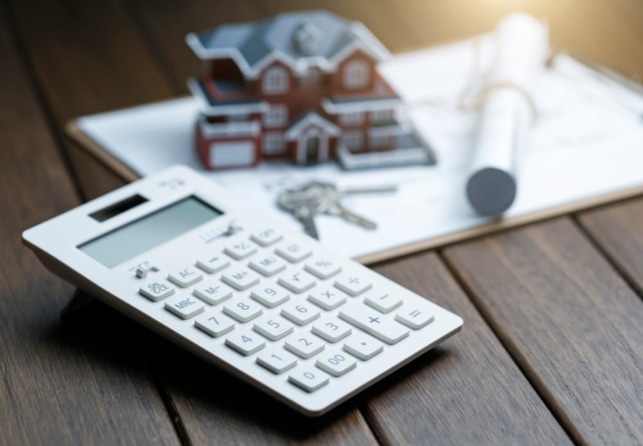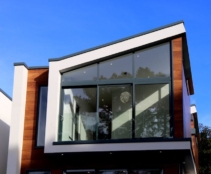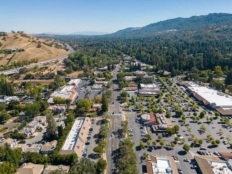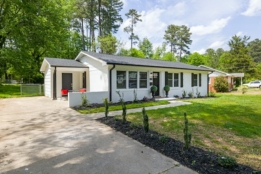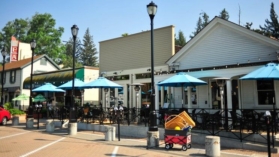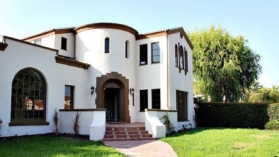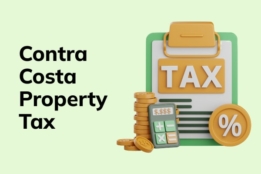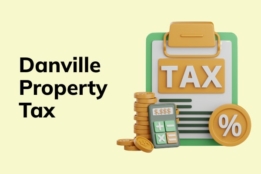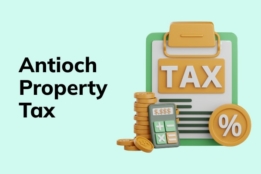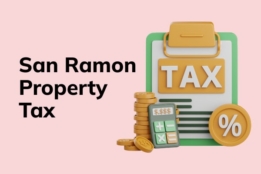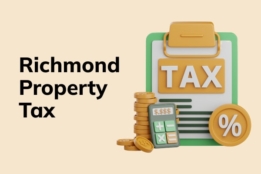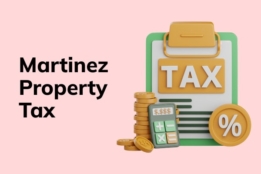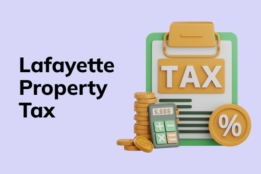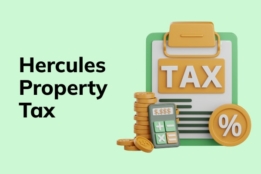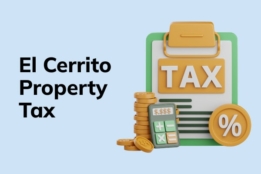Table of content
How Much Clayton Property Taxes Will I Pay?
The average property tax rate in Clayton is currently 1.11%, which is similar to the rate in the rest of Contra Costa County. However, there may be slight variations in different areas within the city, so it is important to check the specific rate for your address.
Property tax in the county is guided by California’s 1% base rate. Property tax rates must not exceed this base rate, except in cases where special or direct assessments exist, which may require a higher rate. When determining property tax rates, several key factors are considered. These include:
- Average real estate values in the area
- The funding requirements for local projects
- The average income levels of residents
Fairness is always a priority in setting property tax rates.
In some cases, property tax liabilities can be reduced, and we will discuss this further in the guide. The average property tax rate in Clayton is similar to that of Contra Costa County as a whole, and the rates here are generally lower than the national average in the United States. Due to the high real estate values in Clayton, excessively high property tax percentages are not necessary to generate the required funding for local projects. However, it is important to note that exact rates may vary within the city, so it is recommended to conduct thorough research. We can help with this.

Can I Calculate My Property Taxes In Clayton?
It is relatively straightforward to calculate the amount of property tax you would owe in Clayton. Two essential pieces of information are required:
- The precise property tax rate for your specific address.
- The assessed market value of the property.
Once you have this information, the calculation is simple. First, divide the market value of your home by 100 to obtain the 1% ad valorem tax rate. Then, multiply this rate by the actual property tax rate for your property, resulting in the amount due for one year. It is important to note that this is a general guide, and the amount may change over time.
The assessed value of the property is a critical variable. Typically, the property’s most recent sale price serves as the primary factor, and for tax purposes, this value cannot increase by more than 2% per year unless the property is sold. Having an accurate market value is crucial for property tax calculations, and many individuals challenge the assessed value to reduce their tax burden.
Property appraisals consider two key factors:
- The unique features of the home
- The selling prices of comparable properties in the neighborhood
Appraisers evaluate similar properties in the local area and assess specific features that impact the value, such as swimming pools, yard space, or additions. Their expertise is used to determine the market value.
Let’s consider an example: Suppose you have a 3-bedroom single-family home with a large backyard and a pool. The property is valued at $765,000, and the property tax rate is 1.11%. Here is how the calculation would proceed:
- Divide the appraised value by 100 (765,000 ÷ 100 = 7,650).
- Multiply the result by the actual property tax rate (7,650 x 1.11 = 8,491.5).
Therefore, the calculated annual property tax due would be $8,491.50.
How To Pay Your Clayton Property Taxes?
As a property owner in Clayton, it is your personal responsibility to ensure timely payment of your property tax bill. You are also accountable for ensuring you receive the bill, as non-receipt does not serve as a valid excuse for non-payment.
In Clayton, property tax payments are made to the Contra Costa Treasurer-Tax Collector. There are several methods available for paying your Clayton property tax:
- In-person payment: You can visit the Finance Building in Martinez, CA, during walk-in hours from Monday to Friday, between 8:00 AM and 5:00 PM.
- Pay by mail: Look for the return envelope provided in your property tax bill package. This envelope is designated for sending payment by check.
- Pay online: Utilize the designated online portal for making electronic payments. Payment options include e-check, credit card, or debit card. Please be aware that there will be a service charge for card payments.
- Pay by phone: Call 925-608-9500 to make a payment over the phone. An automated voice response system will guide you through the process of paying with a credit/debit card (service charges apply) or e-check.
The choice of payment method is entirely yours. The most important aspect is ensuring that you make the payment before the deadline to avoid incurring penalties.
Please be advised that there is a service fee of 2.5% for card payments, with a minimum charge of $3.50. If your e-check is rejected for any reason, a returned check fee of $85 will be applicable.
When Is Clayton Property Tax Due?
Your Clayton property tax bill should arrive in September or October, although for some individuals, it may not arrive until November. If it reaches November 10 and you still haven’t received it, you should contact the Tax Collector’s Office and inquire about it. Alternatively, you can access the bill online starting from October, but you will need your Assessor’s Parcel Number (APN) to do so.
You are required to pay your yearly property tax in two installments:
- The first installment is due on November 1, and payment must be made by December 10 at the latest.
- The second installment is due on February 1, and the payment deadline is April 10.
If you prefer, you can pay both installments by December 10. Missing these deadlines will result in penalty charges. If you anticipate any issues with meeting the deadlines, it is advisable to request a property tax postponement as early as possible. This will defer the due dates, but you will still need to settle your balance at some point. Keep in mind that there is limited availability for postponements, so it is recommended to act promptly.
What Happens If You Are Late To Make Payment?
If you fail to make a timely payment for property tax in Clayton, you will be subject to penalty fees.
- For missing the first deadline, a penalty of 10% will be added to your outstanding balance.
- Similarly, if you miss the second deadline, you will incur a penalty of 10% along with a $20 administrative charge.
These penalties are just the initial consequences of non-payment. If you have not paid by June 30, you will be considered tax-defaulted, and your outstanding balance will begin to accrue interest at a rate of 1.5% per month. After 5 years in this state without settling your debt, your property may be at risk of repossession.
If you are concerned about late payment, it is advisable to find a way to pay the amount owed as soon as possible. It may be possible to establish a redemption installment plan to gradually repay the debt. Keep in mind that the longer you have an outstanding balance on your Clayton property tax, the larger your debt will grow.

How Can You Reduce Your Tax Liability?
You have several options for reducing your property tax in Clayton. Here are a few approaches you can consider:
- Look into challenging the appraised market value of your property.
- Explore the various special exemptions available.
- Apply for the homeowners’ property tax exemption (see the next section for details).
To apply for a special exemption, it is recommended to contact the Assessor’s Office. Exemptions are designed to assist specific individuals or groups in reducing their tax liability. You may be eligible for exemptions such as the church exemption, veterans exemption, seniors exemption, or Proposition 19. Remember that strict criteria must be met to qualify for these exemptions. For more information, reach out to the Contra Costa County Assessor’s Office. The decisions on applications are made at their discretion.
Challenging the assessed property value is a common approach to reduce tax liability. To do this, you can submit a request to the assessor to review your case. They will conduct a Proposition 8 Review to assess your home’s current value for tax purposes. If you are dissatisfied with the outcome, you have a 60-day window, specifically between July 2 and November 30, to appeal. However, it is crucial to pursue this option only if you are confident you have a strong case, as it may result in additional costs if your appeal is unsuccessful.
What Is Homeowners Property Tax Exemption?
In Clayton, property tax payers often seek to apply for the homeowners’ property tax exemption as a means to reduce their bills. If you own and reside in the property as your main residence, you are likely eligible for this exemption. Essentially, it works by reducing your home’s appraised market value by up to $7,000, which can result in an annual property tax reduction of up to $70.
It is important to note that this exemption is specifically designed for owner-occupiers in Clayton and does not apply to landlords or rental properties. In most cases, the necessary paperwork is sent to new property owners upon completing a property purchase. However, if you did not receive the exemption paperwork at that time, you can request it at any point.
